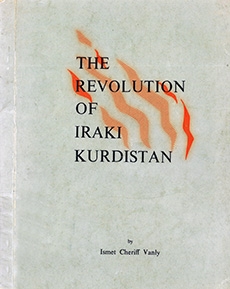|
CHAPTER I
General Introduction
For nearly two years and especially after the fall of Kassem on February 8, 1963, the international press has been writing about a harsh war being fought in Iraki Kurdistan between the Kurdish people and the Baghdad government. If the European reader is more or less well informed about these events, it seems, on the other hand, that the Kurdish national question is on the whole unknown to the broad masses of Africa, Asia and Latin America.
Although far from having reached its greatest dimensions, this very complex question is alreary, however, of great importance, because it conerns the future of an oppressed nation, its relations with neighbouring nations, the future of the Middle East and of peace in that region. Before discussing present events, it is therefore necessary to situate the Kurdish problem in its geographic and historical context, although the length of this booklet only permits a rapid survey.
Who are the Kurds?
The Kurdish people are one of the most numerous of western Asia and perhaps the most ancient. The Anabasis, the Greek classic of Xenophon, written in 401 B.C., speaks of the Kurdish people under the name of “Kardu,” and locates them in the same country as today, mainly in the valley of the upper Tigris and Zab rivers. The Kurds had been in this area well before then. After Xenophon, nearly 11 centuries passed be-: fore the Moslem Arabs arrived in Syria and Irak, and it was 15 centu-ries before the first Turks arrived in the country that was to become Turkey. Despite all the invasions of Kurdistan and western Asia, the Kurds maintained intact their language and their national characteristics, thanks to their fierce attachment to their independence and to the mountainous nature of their country.¹
The Kurds are a people of Indo-European origin and speak an independent language of the Aryan or Iranian family, related to Persian. Ethnically and linguistically, the relations between Kurds, Persians and Afghans are comparable to those that exist between Italians, Frenchmen, Spaniards, Catalans and Portuguese, or between Russians arid Poles. The Kurds are considered the descendants and heirs of the ancient Medes of remote antiquity. Formerly of the Zoroastrian religion, they were converted to Islam after the Moslem conquest, but it is obvious that religious considerations are completely alien to the Kurdish national movement.
The Kurdish people constitute one single nation, in the scientific sense of the word, having one country, one language, their own historical development, internal economic relations, their own culture and national consciousness.
The Country of the Kurds
But, as is already known, it is a nation that has been outrageously oppressed and, like Poland before the First World War, politically divided. Kurdistan, which means ’’the country of the Kurds,” is a vast country with an expanse of some 500,000 square kilometers, a country that is geographically continuous, but divided by political frontiers, mainly between Turkey, Iran and Irak. Turkish Kurdistan covers the eastern provinces of that State, Iranian Kurdistan extends over the western edge of the Iranian plateau and stretches from the Soviet frontier in the north to the oil region not far from the Persian Gulf, in the south; and Iraki Kurdistan covers the northern and northeastern provinces of that State, with the oil regions of Kirkuk, Ain-Zalah (near Mosul) and Khanakin. There are three Kurdish enclaves in northern Syria, adjacent to the Turkish-Syrian border and Turkish Kurdistan, that is, the region of Northern Jazira, Arab-Pinar and Kurd-Dagh. In the Soviet Union, there are also Kurdish communities, but dispersed in the Soviet Socialist Republics of Armenia, Azerbai-dzhan and Georgia. Kurdistan is a mountainous country, rich in mineral resources, with green valleys and internal plains that are cultivated. The Kurdish mountains were very wooded during antiquity, but today there are only a few forests. The climate is severe, very cold in winter, with heavy snow, and fairly hot and dry in summer, except in the mountains. Water is abundant in Kurdistan. The Tigris and the Euphrates are Kurdish rivers in their upper reaches. The same is true of the Diyala (Sirwan) and the Karun. The Big Zab, Little Zab and the Bohtan are typically Kurdish rivers. Lake Van, six times larger than Lake Geneva, is found in Turkish Kurdistan. Oaks, walnut trees, poplars, mulberry trees and birches are the most commonly found trees in the Kurdiah countryside.
The Kurdish People
Naturally, there is a dispute about the number of the Kurdish people. Those who oppress the Kurds want at any cost to minimize the importance of the question and put forward figures well below the truth: three to six millions. The most enthusiastic Kurds estimate around 18 million. Cautious observers in Europe put forward a total figure of 9 to 10 million. We believe that their number is around 13 million. The evidence in this respect cannot be reproduced here because of lack of space. Of this figure, there are six million in! Turkish Kurdistan, 4.5 million in. Iranian Kurdistan and two million in Iraki Kurdistan. If the number of Kurds in Syria and the U.S.S.R. were added, one has the following table:
…..
1 See Encyclopidie.de I'Islam and Encyclopedia Britannica, articles “Kurdes” and “Kurdistan.”
|
